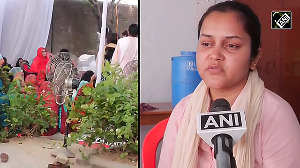Announcing the new tax, which will be on an "appropriately defined base", Finance Minister P Chidambaram said there are many perquisites disguised as fringe benefits escaping tax.
Neither the employer nor the employee pays any tax on these benefits, which are of considerable material value, he said.
At present, where the benefits are fully attributable to the employee they are taxed in the hands of the employee, that position will continue.
In addition, the Minister has proposed that where the benefits are usually enjoyed collectively by the employees and cannot be attributed to individual employees, they shall be taxed in the hands of the employer.
However, transport services for workers and staff and canteen services in an office or factory will be outside the tax net, he said.
The budget said an employer liable to pay fringe benefit tax would be required to furnish a return of benefits before the due date.
It said the taxation of perquisites of fringe benefits provided by an employer, in addition to cash, salary or wages paid, was subject to varying treatment in different countries.
The rationale for levying a fringe benefit tax on the employer was due to the inherent difficulty in isolating the "personal" element where there is collective enjoyment of such benefits and attributing it directly to the employee.
"This is so especially where the expenditure incurred by the employer is ostensibly for purpose of the business but includes, in partial measure, a benefit of personal nature," it said.







 © 2025
© 2025